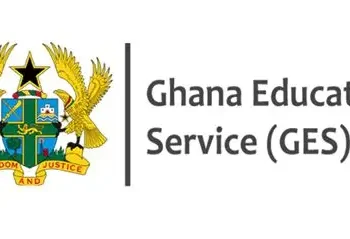Executive director at the West Africa Center for Counterextremism (WACCE), Mutaru Mumuni Muqthar, has expressed his reservation on the Economic Community of West African States (ECOWAS) capacity to restore peace in coup-riddled Niger.
According to him, ECOWAS threat to suspend trade and financial transactions with Niger, among others, is not a good call. He revealed that ECOWAS’ past record in dealing with this kind of situation proves it will be an uphill task for the regional bloc to undertake.
Mr Muqthar explained that in the last three years, ECOWAS has had similar opportunities to act in ways that shows that it is an effective regional body capable of restoring order and ensuring that situations of coup which happened in Mali and Burkina Faso are averted. However, he noted that it has failed to achieve that.
“I think that it is a very difficult situation and I have little hope of ECOWAS chances of having any meaningful intervention or impact in what is going on. It is because the options do not exist for the kind of things that ECOWAS wants to do. I think that they had a huge opportunity decades ago in terms of preparing preemptive and proactive measure to deal with governance issues and things like this…”
Mutaru Mumuni Muqthar
Mr Muqthar revealed that ECOWAS should have in the previous coup occurences deployed some index or matrix that maps out the vulnerabilities of all these countries within the subregion. This, he noted, would have projected that these vulnerable countries were sliding into situations of coup, and can effectively allow for preemptive action or measures to be taken.
“While we do not have that, this is a reality of coups happening. To have ECOWAS threaten, and they have been doing that in all the four situations – threatening all kinds of actions, using sanctions, embargos and punitive measures, seeking to deter military leaders from acting the way they want to do and that has not been able to deter them…”
Mutaru Mumuni Muqthar
ECOWAS intervention in Niger an error
Further commenting on the threat issued by ECOWAS, Mr Muqthar emphasized that it was a huge error in his estimation because it’s a big departure from what ECOWAS has done in the last three situations. He underscored that if ECOWAS chooses to actually intervene militarily, it will be a huge blunder and undermine the security of Niger.
“They are asking these military leaders to stand down, other than that they are going to intervene in a military way… If you know how the negotiations went with the former military establishment in Niger, between them and the presidential guard, it was the same situation – asking them to stand down and threatening them they could be taken down. If you understand the implications of a failed coup, you will make sure that it succeeds…”
Mutaru Mumuni Muqthar
Meanwhile, the executive director of WACCE revealed that the recurring coup happenings in the subregion is a worrying phenomenon and must be of concern to everyone in West Africa, Africa and globally, in terms of global security and global politics. He stated that when this started occurring some years ago in Mali and Burkina Faso, most analyst were concerned about its tendency to be very contagious in terms of its capacity to affect other very vulnerable countries within the region.
“Where we are, in the last three years, having had six coup situations happening, this is a very poor record on our part in terms of our ability to sustain democracy and good governance. We are not out of the woods yet, because there are other vulnerable states within the subregion. If you look at it, I have made this point several times that it’s a function or product of dysfunctional governance or dysfunctional leadership within this space.”
Mutaru Mumuni Muqthar
Mr Muqthar revealed that coups as witnessed in Mali, Burkina Faso and now Niger, do very poorly when it comes to governance, economic opportunities for young people and provision of social amenities. This, he noted, is why they rank low on the Human Development Index.
In light of this, he urged other African countries, including Ghana, to remain cautious and pay close attention to their ability to sustain democracy.
Meanwhile, Defense minister, Dominic Nitiwul, has ruled out the possibility of a coup happening in Ghana, following the growing trend of violent extremism and unconstitutional takeovers of democratically elected governments in West Africa. He urged all Ghanaians who desire to see change of government to express their opinions through the ballot box ahead of the 2024 elections.























